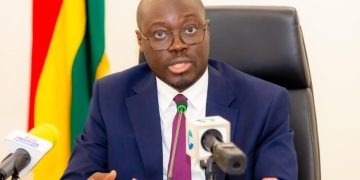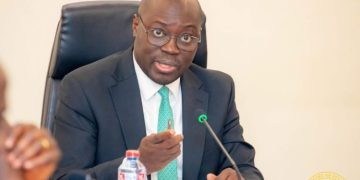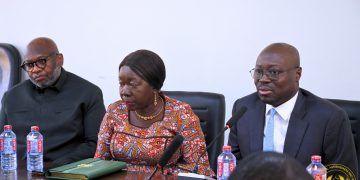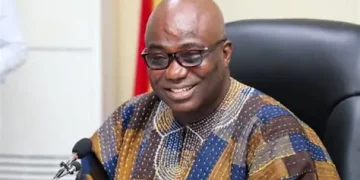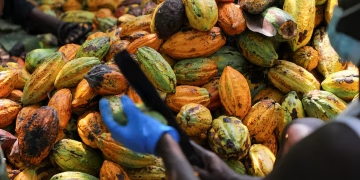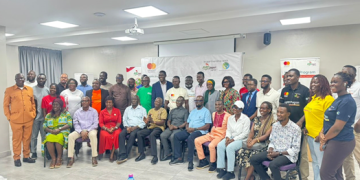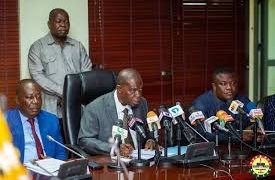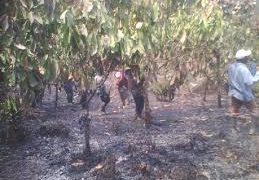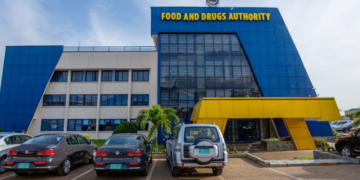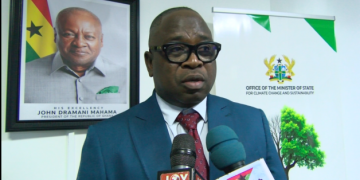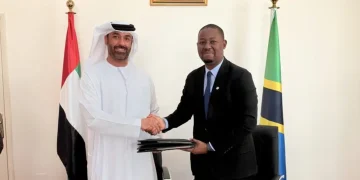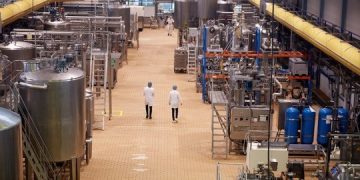The Ghana National Petroleum Corporation (GNPC) has renewed its commitment to becoming a fully fledged national operator, pledging to strengthen its technical capacity, institutional efficiency, and financial sustainability as part of efforts to secure Ghana’s long-term energy future.
Speaking at the corporation’s Second Annual General Meeting in Accra, Acting Chief Executive Officer Kwame Ntow Amoah said GNPC is steadily evolving into a technically competent and commercially agile organisation capable of taking full charge of national oil and gas projects.
“We are building a GNPC that is technically competent, commercially agile, and strategically positioned to secure Ghana’s energy future,” Mr. Amoah stated.
The AGM, held under the theme “Consolidating Our March Towards Operatorship,” brought together key stakeholders, including representatives from the Ministry of Finance, the State Interests and Governance Authority (SIGA), the Ministry of Energy and Green Transition, and members of GNPC’s Board and management. The Minister of Energy and Green Transition, John Abdulai Jinapor, served as guest of honour and lauded GNPC’s steady progress, reaffirming government support for its operatorship agenda.
GNPC’s 2024 Annual Report, presented at the meeting, highlighted the corporation’s operational and financial performance during the year under review. Despite a marginal 0.3 percent decline in oil production, gas exports increased by 10 percent, reflecting improved output from key assets and growing demand in the domestic market.
Mr. Amoah outlined several milestones achieved during the year, including continued development of the Voltaian Basin Project, the inauguration of the GNPC Energy House in Takoradi as the corporation’s operational head office, progress on the establishment of a Research and Technology Centre, and the revitalisation of its upstream subsidiary, EXPLORCO.
He also reaffirmed GNPC’s commitment to environmental sustainability, noting that the corporation is aligning its operations with Environmental, Social and Governance (ESG) principles and Ghana’s Updated Nationally Determined Contributions (NDCs) under the Paris Agreement.
Delivering the keynote address, Mr. Jinapor emphasised that GNPC plays a crucial role as the state’s technical and commercial representative in the petroleum sector and must therefore continue to build the expertise required to operate oil blocks independently. “The energy transition makes capacity building a necessity,” he said. “GNPC must continue to develop the technical skills needed to operate sustainably and competitively in a changing global energy landscape.”
The Energy Minister also outlined ongoing government interventions to stabilise the petroleum industry, including measures to reverse declining oil output, attract new investments, and expand gas infrastructure. He assured stakeholders that the Ministries of Finance and Energy are working closely to resolve GNPC’s gas debt exposure and strengthen the corporation’s financial position.
GNPC Board Chairman, Professor Joseph Oteng-Adjei, commended management for maintaining focus and resilience despite sector challenges. “Our priority remains building technical competence, institutional strength, and financial prudence to sustain GNPC’s long-term value,” he said.
Deputy Minister of Energy and Green Transition, Richard Gyan, also reiterated the government’s confidence in GNPC’s leadership and pledged continued ministerial support to advance the corporation’s operational independence.












